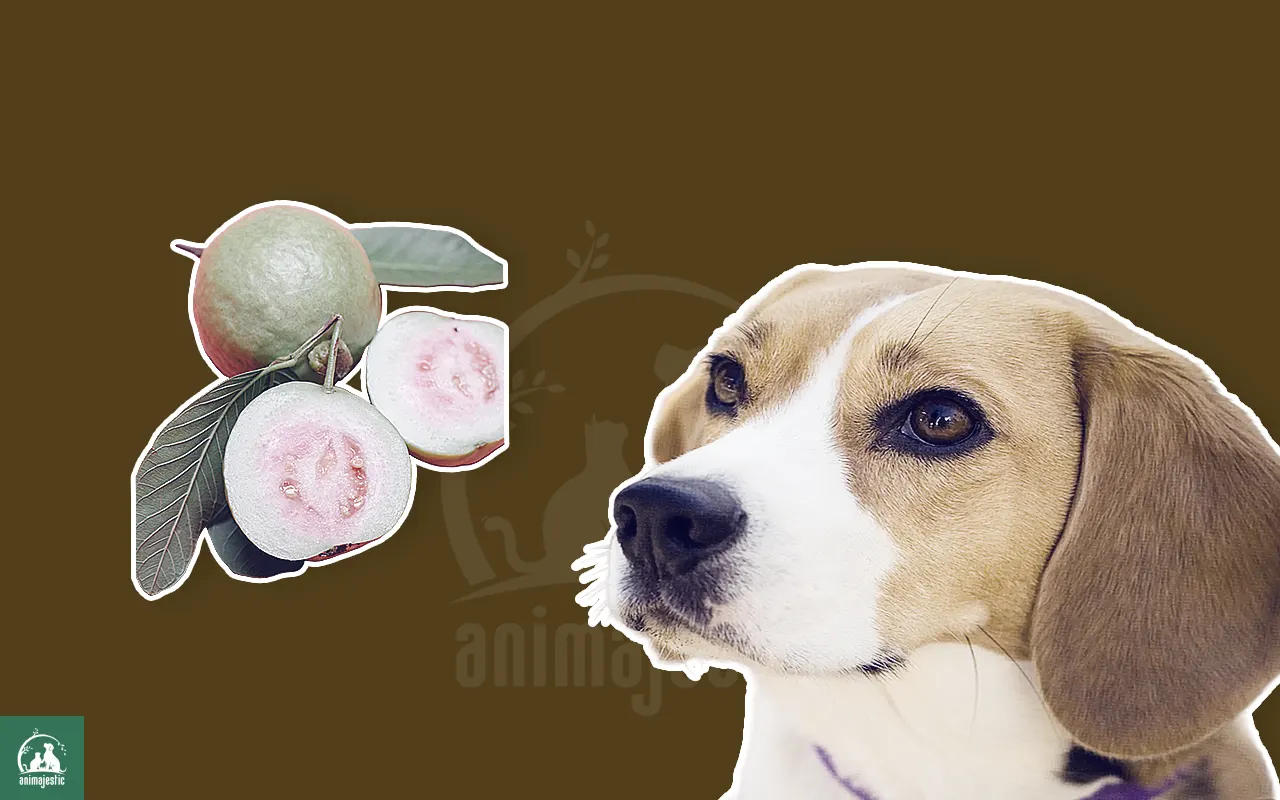Is your four-legged best friend eyeing your delicious guava snack and wondering if they can join in on the fruity goodness? Or have you been on the lookout for healthy and natural treats for your canine companion? In either case, you are not alone!
In this comprehensive guide, we will explore the world of guavas and address whether or not this tropical fruit is safe for dogs to consume.
So, brace yourself for an in-depth overview brimming with guava-licious information!
What’s Up With Guava?
Guava, scientifically known as Psidium guajava, is a tropical fruit native to Central America and northern South America which is now grown in various parts of the world due to its popularity and potential health benefits.
Available in several varieties, guava has a distinct taste and aroma that makes it a favorite among fruit enthusiasts.
Health Benefits of Guava: Good for Humans and Dogs Alike?
Guava is not only tasty but also rich in nutrients. Let’s explore some of the key health benefits of this fruit:
- Rich in Vitamin C: Guava contains impressive amounts of Vitamin C, which bolsters your immune system and protects against free-radical damage.
- Antioxidant Properties: Guava boasts a high concentration of antioxidants such as lycopene and beta-carotene that can help neutralize harmful free radicals and slow down aging.
- High in Potassium: This mineral aids in maintaining healthy blood pressure and muscular function.
- Dietary Fiber: Guava is packed with dietary fiber, which promotes healthy digestion and manages weight by keeping you full for longer periods.
Now, the million-dollar question: Are these health benefits transferable to dogs?
Can Dogs Eat Guava?
The good news is YES, guava is indeed safe for dogs to consume, in moderation of course because dogs are primarily carnivorous, but they can still benefit from a limited amount of fruits and vegetables in their diet.
The beneficial nutrients found in guava can contribute to your dog’s overall health and wellness. However, as with any new food addition and as a general rule, it is essential to monitor your dog for any signs of intolerance or adverse reactions.
Serving Guava to Your Dog: Dos and Don’ts
Now that we know that guavas are safe for dogs, let’s discuss some tips on how to serve this delectable fruit to your fur baby.
Dos
- Wash the Fruit: Thoroughly wash the guava to remove any dirt or contaminants lingering on the surface.
- Remove the Seeds: Guava seeds can cause intestinal blockages in dogs, so ensure that you eliminate the seeds.
- Chop into Small Pieces: Cut the guava into small, bite-sized pieces to prevent choking hazards.
- Gradually Introduce Guava: Before introducing guava to your dog’s regular diet, start by offering a small amount to gauge their reaction. Gradually increase the amount if they seem to enjoy it and don’t display any adverse effects.
Don’ts
- Don’t Feed Unripe Guava: Unripe guavas can cause stomach upset in dogs, so it’s crucial to only feed ripe guavas. Ripe guavas should be slightly soft to the touch, with a strong, sweet aroma.
- Don’t Give Large Quantities: Stick to moderate amounts and avoid making guava the main focal point in your dog’s diet. Overfeeding guava can cause diarrhea and digestive issues.
Precautions and Potential Dangers: What to Watch Out For
While guava is safe for dogs when consumed in moderation, it’s essential to be aware of any potential risks:
- Choking Hazards: As mentioned above, guava seeds and large chunks can be choking hazards for dogs. Always remove the seeds and cut the fruit into small, manageable pieces.
- Diarrhea or Digestive Upset: Overfeeding guava can lead to diarrhea or stomach upset in dogs. Be sure to limit the quantity of guava you provide.
- Adverse Reactions: Just like humans, dogs can have individual sensitivities or allergies to specific food items. If you notice signs of an allergic reaction such as itching, hives, or difficulty breathing, discontinue feeding guava and consult your veterinarian immediately.
Other Fruity Options
If for some reason guava isn’t your dog’s cup of tea or you’re worried about potential risks, there are plenty of other fruity options to incorporate into their diet.
Some healthy, dog-friendly alternatives include:
- Apples (excluding seeds and core)
- Blueberries
- Pineapple (avoid skin and core)
- Strawberries
- Watermelon (seedless)
Always remember, that moderation is key. Consult with your veterinarian before introducing new fruits or treats into your dog’s diet.
Conclusion
So, can dogs eat guava? Absolutely YES! When served properly and in moderation, guava can be a delicious and nutritious treat for your furry friend.
This is due to its rich nutrient profile and health benefits, which is no wonder why it has earned a spot in the list of dog-approved treats.
Once again, don’t forget to monitor your dog’s reaction when introducing guava, and always practice caution by removing seeds and properly portioning the fruit.
For now, all left for me to say is, enjoy sharing this yummy, wholesome treat with your pup, and may your dog’s tail never stop wagging with guava-joy!
Woof, woof…
